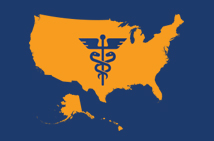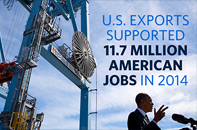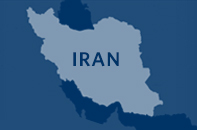Blog Action Day: Highlighting the Devastating Crisis in the Horn of Africa
Ed note: As part of Blog Action Day, the White House's Courtney O'Donnell, who traveled to refugee camps in Kenya this summer with Dr Jill Biden, reflects on how we can all make a difference in the lives of those suffering in the Horn of Africa.
Blog Action Day and World Food Day provide an opportunity for individuals all over the world to spark collective action around the pressing global issue of food. This is particularly important now, as drought in the Horn of Africa and famine in parts of Somalia threaten millions.
Tragically, the worst drought in 60 years is being complicated by a chaotic political situation in Somalia. People are facing not only hunger, but also terrorism and violence.
In August, I traveled to Kenya along with my boss, Dr. Jill Biden and several other U.S. officials to visit the to the largest refugee camp in the world, in Dadaab, Kenya, where nearly 1,300 people arrive every day. We met with families who had walked for days or weeks, often barefoot, with no possessions, desperate to find food and medical care.
We spent time with a mother who had walked for over two weeks with her malnourished children to get to the camp. Her baby was sick with diarrhea; an ailment that seems minor to many of us but in these circumstances could be fatal. Like many of the women in the camps, this mother had walked day and night, through very dangerous conditions to try to save her children.
While the U.S. Government and the international community has mobilized and we are helping millions of people in the region – the scope and pace of this crisis is relentless. Without additional assistance, hundreds of thousands more could die. And most of those deaths will be children.
But there is hope.
On our visit we saw first-hand that even the smallest and simplest investments can save lives.
We saw two-dollar measles vaccinations that literally mean the difference between life and death for children. We also saw how inexpensive ready-to-use therapeutic food treatments and oral rehydration packs can bring listless babies back to life.
Through the Obama-Biden Administration’s Feed the Future program, we have been investing in country-led strategies designed to address the root causes of hunger and food insecurity around the world, so that we can help prevent the kind of suffering we see in Somalia today.
During our trip to Kenya we also saw first-hand the progress being made from investments in long-term food security. At the Kenya Agricultural Research Institute (KARI) in Nairobi – we saw innovative and improved crops and irrigation methods being developed and learned about new developments and ways for farmers to market and transport their products. The goal of our aid is simple: to help create the conditions where such aid is no longer needed.
We all know these are tough times here at home and in many places around the world but we also know that Americans always respond to humanitarian crises especially when a small donation can literally – literally -- save the life of child.
Already there are so many individuals, members of the faith community, businesses and other organizations coming together to make a difference in this crisis. The U.S. Agency for International Development recently launched the FWD campaign – to highlight the devastating nature of the crisis in the Horn of Africa and to ask people to help spread awareness.
FWD is a call to action – a call to get people informed, to get engaged and to forward this information to friends and families.
Hopefully this post will inspire you to check out www.usaid/fwd today and take action.






